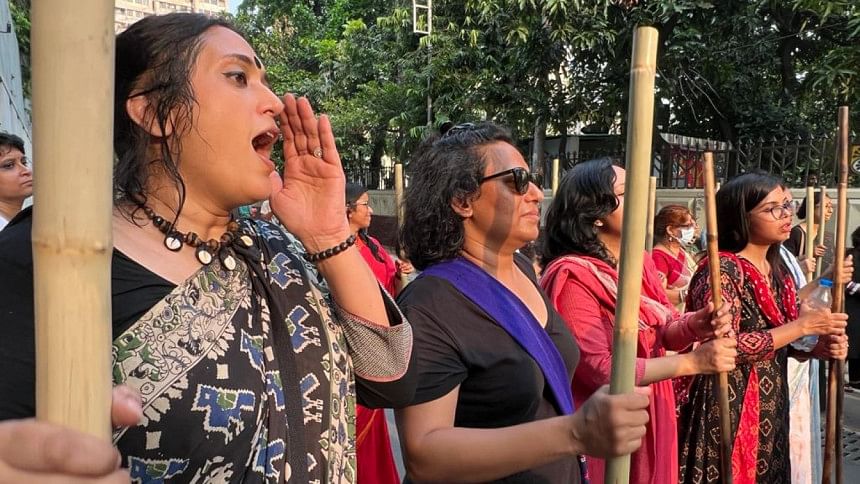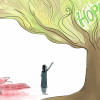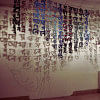Himmati Mai: Symbolic protest in response to widespread atrocities against women

Saturday afternoon witnessed a unique performance art at the city's Shilpakala Academy Grounds, where 70 women across all generations and professions took to the streets for an hour to protest against the escalating abuse against women all over the world including Bangladesh. The protest, arranged by artist, Reetu Sattar included 'curated' participants, belonging to various progressive and proactive feminist organizations in the country, to jointly hit the ground with a bamboo stick whilst expressing a galvanising protest chant, as an expression of anger against all forms of violence. The event had been named Himmati Mai, which is the Bangla translation of the play 'Mother Courage and Her Children' by German dramatist and poet Bertolt Brecht.
The performers took to the streets for an entire hour, and not even for a second did the banging or the chants subside. The intensifying sounds of the banging emulsified with the drum rolls to almost mimic a war call.
"In certain indigenous communities, the warriors chant and perform drum rolls to identify that they were ready to fight, I wanted a similar application in this particular performance art to be able to effectively express our accumulated anger and notify the world that we were also ready to take on the challenge of change," said Sattar.
The sound of drums, sticks banging on the street and the "Hu's" combined formed an enchanting afternoon. Hair-raising and heartfelt, the audience was mesmerised and in solidarity with the protest. Through the symbolic exhibition, the participants tried to express their accumulated anger and frustrations. The peaceful but impactful protest helped them to raise voice against all the unfair and restrictive attitudes that the patriarchal society placed against women.
Artist Reetu Sattar said, " I have been planning to materialise the performance art for the last one year. The inspiration evolved, especially after the heinous rape crime at Begumganj, Noakhali. The brave victim of the incident, influenced me to raise my voice against oppression, with her harrowing proclamation. I am still in awe of the honoured lady who took to the stands at the courtroom and told the entire world that the atrocities did not happen because of any religion or caste issue, but only because of her being a woman — an emasculated gender in a widely patriarchal society."
The artist believes that Himmati Mai would be able to strike the chord of the nation, awakening the citizens about women's constitutional rights, equality and arduous request to safety, security and protection.

 For all latest news, follow The Daily Star's Google News channel.
For all latest news, follow The Daily Star's Google News channel. 








Comments